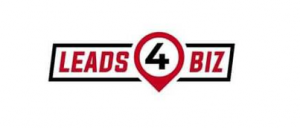
Pivotal Questions to ask your Child’s Private School
Great Questions To Ask A Private School
This week, we will look to OUR KIDS, a Canadian publication about all things Canadian private school-related. OurKids.net is a practical resource for parents when deciding if a private school is right for their child and which one is the best fit once a decision has been made to ‘Go private.’
Of course, there are many other questions to ask than the 12 listed below, but this short list is a good start and one that will apply to everyone. You will, of course, have your own questions particular to you and your child(ren)’s situation. Be sure to prepare these beforehand and have your own personal list ready. Enjoy reading! Rene.
It’s important to visit many different schools and talk with school officials, such as directors, teachers, and other staff. You’ll want to ask them plenty of questions to help you find the right school for your child and family (or to select from among the schools you may have been accepted to).
Top 12 questions to ask private schools.
Below, we discuss 12 crucial questions you should ask private schools you’re considering. For each question, we suggest numerous sub-questions to key in on.
To prepare for your school visit or tour, print this list of questions and sub-questions.
1. What is your school philosophy or vision?
It’s important to find out what a school’s philosophy or vision is. You want to make sure this is consistent with your own educational beliefs and values. Often, a school’s philosophy is reflected in its mission statement and is carried out through what’s called a “strategic plan”.
Of course, you should also find out how the school’s philosophy is implemented in practice. What’s crucial is how it gets translated into teaching, learning, the curriculum, and student life.
Key questions to ask:
- What are the key elements of your school philosophy?
- How do these fit with your school’s mission statement?
- How are they applied in the classroom and school community?
| Tip: Find out where a school’s mission statement is displayed and read it carefully. This should give you a clear sense of what the school’s overall vision is. |
2. What type of student are you looking for?
Most schools accept students with many different academic, social, and emotional profiles. Many, though, target certain types of students.
For instance, they may prefer students with a specific academic focus, such as math, science, or the arts. Beyond academics, they may prefer kids who are socially aware, sporty, well-rounded, independent, ambitious, or actively involved in student life, among other things.
Make sure to find out which kind(s) of students a school is looking for. This should help you decide whether your child will likely be a good fit.
Key questions to ask:
- What does your model student look like?
- What kind of academic focus do they typically have?
- What kinds of interests and goals might they have outside of academics?
- How does your idea of a model student align with your school vision or philosophy?
| Tip: Don’t try to force your child into a school’s concept of a model student. If he or she doesn’t fit this model, the school may not be a good match. |
3. What curriculum do you use?
You’ll want to make sure that your child has the right learning and academic profile for a school. To do this, you should learn as much as you can about its curriculum.
Find out what the curricular guidelines and standards are at the school. You should also ask what their curricular approach is, and whether its more student- or teacher-centred. You want this approach to support your child’s learning needs and style.
Key questions to ask:
- Do you meet or surpass the curriculum standards of your home province (such as Ontario or BC)?
- Do you have a specific curricular approach, and if so, what is it? For instance, is it a Montessori, Waldorf, Reggio Emilia, or IB approach? <
- How is your curricular approach integrated into the classroom at different levels of education?
| Tip: Visit at least one or two classes. This will help you to see how the curriculum is implemented by teachers in specific contexts. |
4. What are your class sizes and student-to-teacher ratios?
Class size can really affect the quality of education. A major perk of many private schools is their smaller class sizes and lower student-to-teacher ratios. This can often lead to more personalized attention, differentiated instruction, and student engagement.
However, not all private schools make differentiated learning a priority. How schools take advantage of small class sizes and low student-to-teacher ratios to enhance learning should be a key factor in your decision.

Key questions to ask:
- What is the class size and student-to-teacher ratio for my child’s class and for classes he or she may move on to?
- Do you offer individualized learning and differentiated instruction and what do these things look like?
- Do you have teaching assistants and what role do they play?
| Tip: Don’t be afraid to ask specific and concrete questions. For instance, you might ask how teachers tailor instruction to meet the special learning needs of children with learning disabilities, such as dyslexia. |
5. How much is tuition and what does it include?
Private schools vary widely in price. In Canada, they can charge anywhere from $10,000 to over $100,000 for annual tuition.
There may also be costs not included in tuition. In some schools, you may have to pay extra for school uniforms, textbooks, food, extracurricular activities, field trips, and other things.
Key questions to ask:
- How much is yearly tuition?
- What exactly does tuition include and not include?
- Are there any essentials not included in tuition (e.g., textbooks, uniforms, etc.)?
- What can I expect my overall yearly expenses, including tuition and extra costs, to be at your school?
| Tip: Many schools offer financial support, such as needs-based subsidies or bursaries. Ask about financial aid, and how much, if any, your family can expect over the course of your child’s enrollment. |
6. What extracurricular activities do you offer?
Many private schools offer a wide range of extracurricular activities. This may include sports teams, after-school and lunch clubs, art and science programs, and community service opportunities.
Ideally, a school will offer extracurriculars that meet your child’s interests and needs. For instance, if your child is an enthusiastic and high-level soccer player, you’ll want a school with a competitive soccer team.
Key questions to ask:
- What kinds of extracurricular activities do you offer?
- When and how often do these activities take place?
- Are these activities included in tuition or do I have to pay extra for them? If they cost extra, how much?
| Tip: To learn whether your child is eligible, ask which extracurricular activities are available at which ages. Also, ask whether there are any special conditions for participation (such as earning a spot on the soccer team through tryouts). |
7. What are your teachers’ qualifications and what professional development opportunities are available to them?
Needless to say, teaching is a major factor affecting the quality of education. Many private schools, though not all, have dedicated, passionate, and well-trained teachers.
Find out about the training and credentials of a school’s teachers. You should also ask about opportunities available to teaching staff for professional development, as this can show a school’s commitment to support the success and growth of its teachers.
Key questions to ask:
- What educational qualifications and training do your teachers have?
- What other credentials and qualities do your teachers have (e.g., teaching experience, dedication, passion, etc.)?
- What kinds of opportunities do you give teachers to develop themselves professionally (e.g., workshops, seminars, conferences, advanced studies, etc.)?
| Tip: Talk to teachers to learn more about their teaching approaches, pedagogical strategies, and class policies. Sit in on a class or two to see for yourself how thesethings play out. |
8. How do you integrate technology into the classroom and curriculum?
Modern-day technology is becoming more pervasive in education. Many schools equip classrooms with laptop computers, interactive whiteboards, e-readers, and more. Some schools, especially at the higher levels, also offer optional or required courses in tech-based subjects, such as computer science, programming, robotics, and graphic design.
You may find that school officials, at admissions meetings, tend to talk about what kinds of technological resources the school has. But it’s more important to find out how technology is actually used by students and teachers to enhance the learning process.

Key questions to ask:
- What kinds of technological resources do you have and in what, if any, ways do students have access to these?
- How is technology integrated in the classroom at each level of education?
- What kinds of technological skills, if any, do you teach?
- Do your offer any tech-based courses, and if so, which ones?
| Tip: Ensure a school’s view on the role of technology in education aligns with your own. |
9. How do you measure individual achievement and progress?
- All schools measure student progress in some ways. Even those which tend to eschew grades at the lower levels (and maybe even at the higher levels), such as Montessori, Waldorf, and Reggio Emilia preschools, track how students are doing.
You should look into a school’s approach to measuring student progress. Since it’s crucial to know how your child is doing, this is something you’ll want to keep your eye on.
Key questions to ask:
- Do you grade work, such as assignments and tests? If so, how often?
- If you don’t grade work, how do you measure student progress? What benchmarks do you use?
- Do you have any forms of self-assessment, such as student rubrics?
- How, and how often, are parents updated on their children’s progress?
- Do you use report cards? If so, how often are they handed out?
| Tip: If a school doesn’t grade work, make sure they have some way of tracking how your child is doing. |
10. What is student life like?
Student life is an important part of education. You want your child to be happy, productive, and engaged at school. And you want them to develop and maintain strong friendships and peer relationships.
Find out as much as you can about student life. Look into what school is like for students—socially, emotionally, and intellectually.
Key questions to ask:
- What strategies do you use to promote a vibrant and cohesive community at your school?
- Do you have regular community-building events and activities?
- How do you cultivate strong peer relationships?
- How do you deal with social and behaviour problems, such as bullying, teasing, and ostracism?
| Tip: Talk to students to get a sense of what life is like at the school. It’s also a goodidea to talk to parents about their children’s experience. |
11. How can parents get involved in school life?
Parents play a huge role in their children’s education. In addition to helping find the right school, many get involved in their children’s day-to-day school life, by volunteering in class, serving on parent committees and school boards, and the like.
Since kids learn best when their parents are involved in their education, it’s crucial to find out how a school welcomes you into their community. You should look for a school that offers you opportunities to be involved in many different ways, as well as one that has an open line of communication between parents and the school.
Key questions to ask:
- What opportunities are there for parents to get involved?
- Is there a parents’ association? If so, what does it do?
- What events take place during the school year to involve parents?
- How do educators communicate with parents?
| Tip: In addition to school staff, talk to parents of current and former students. This should give you a good sense of what the school community is like, and how you can get involved. |
12. How is your school operated and governed?
Private and independent schools are operated in different ways. On the financial side, they can be for-profit, not-for-profit, and non-profit. On the governance side, they can be led by school directors, owner-operators, and boards of directors. Schools can also be accredited, governed, and funded by independent educational or governmental organizations.
Find out as much as you can about how the school is operated. Ask about the leadership hierarchy and who is responsible for making which decisions.

Key questions to ask:
- Are you a for-profit, not-for-profit, or non-profit school?
- Do school staff answer to an owner-operator, board of directors, or any other persons or organizations?
- Who do I go to with questions about my child?
| Tip: If your school is accredited, find out as much as you can about the accrediting institution. This can give you valuable information about a school’s educational standards, objectives, and philosophies. |
Rene is a Canadian education consulting, student recruiter, and founder of New World Education Company (dba. GoStudyCanada) based out of Bangkok with over 20 years of experience in the S.E. Asian market. He can be reached at info@gostudycanada.net and followed at GoStudyCanada (FB & IG)



